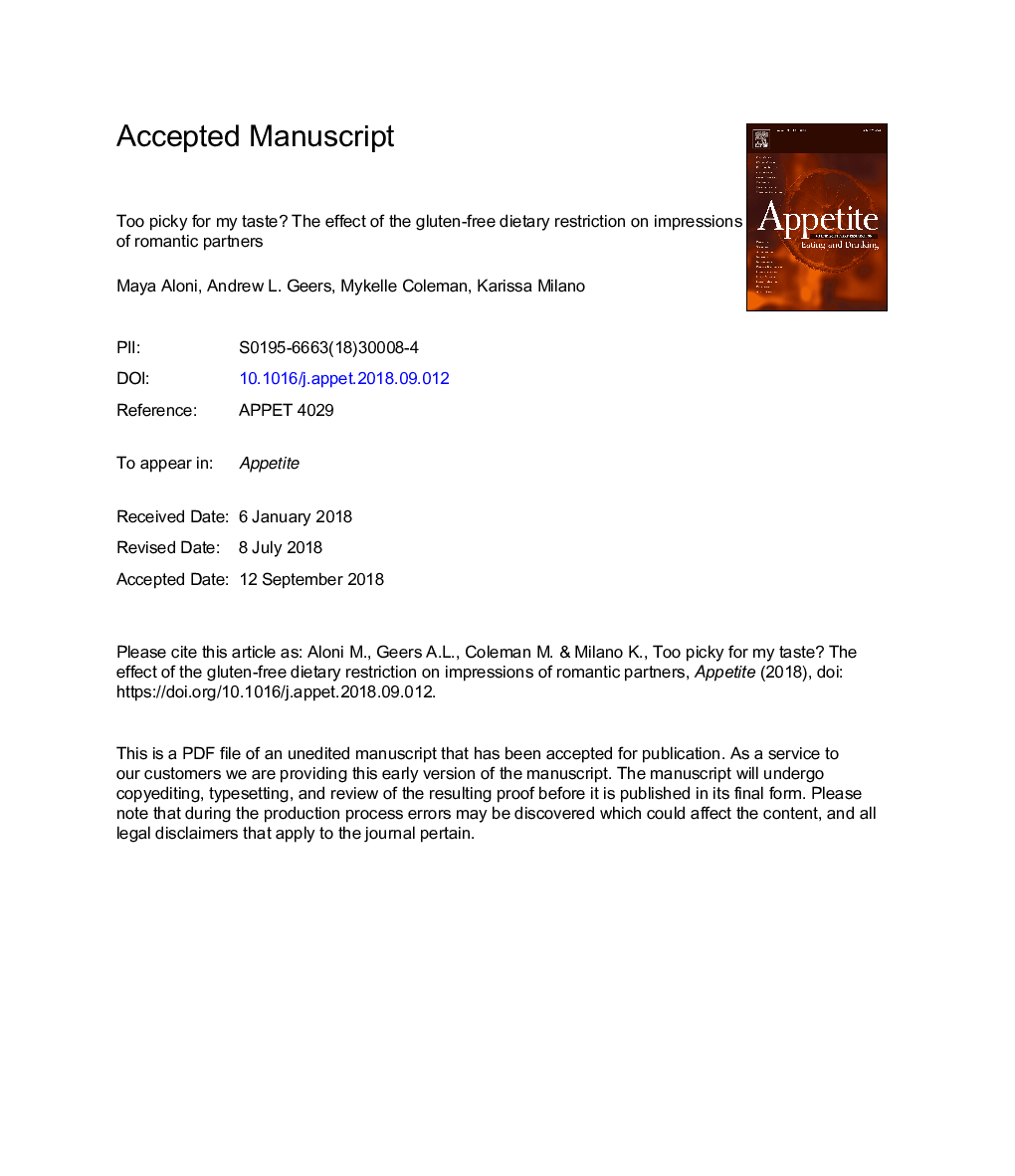| Article ID | Journal | Published Year | Pages | File Type |
|---|---|---|---|---|
| 11020572 | Appetite | 2019 | 56 Pages |
Abstract
Millions of individuals world-wide adhere to a gluten-free diet and this dietary trend is on the rise. The present research identified a consumption stereotype of those following a gluten-free diet and tested whether this stereotype influenced impressions and interest in a potential romantic partner. We also assessed whether being gluten-free differentially impacted impressions of males compared to females. In Study 1, participants (Nâ¯=â¯161) responded to a survey containing both qualitative and quantitative components in which they evaluated gluten-free individuals and indicated their interest in dating them. In Study 2 (Nâ¯=â¯132), we manipulated the dietary restriction (gluten-free vs. no dietary restriction) of a target within the context of a mock online dating paradigm and measured participants' evaluations of the target. In both studies, gluten-free individuals were perceived as having positive and negative attributes such as being high-maintenance, picky, demanding, complaining and judgmental, yet healthy, self-disciplined, understanding and energetic. The gluten-free diet was associated with ratings of femininity and lead to more negative judgments of males than females. Whereas in Study 1 participants expressed some hesitation about dating a gluten-free individual, no effects on romantic interest were obtained in Study 2. These data are the first to delineate the gluten-free stereotype and provide a useful platform for future study.
Related Topics
Life Sciences
Agricultural and Biological Sciences
Food Science
Authors
Maya Aloni, Andrew L. Geers, Mykelle Coleman, Karissa Milano,
